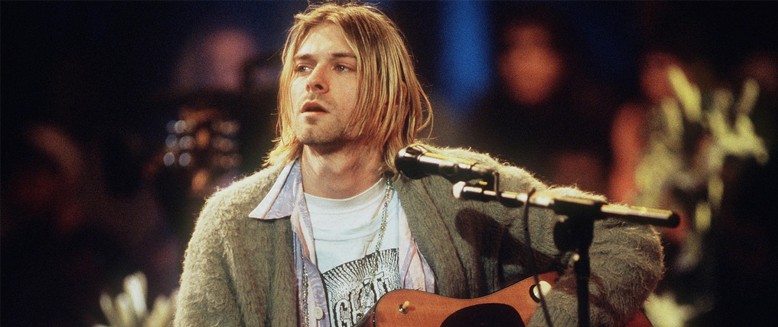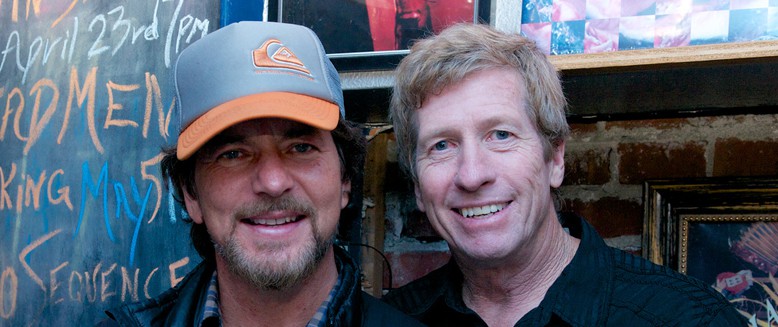Another Grunge Legend Lost to Addiction and Mental Health Health Issues
Chris Cornell, iconic frontman and a key figure in the Seattle grunge movement, was found dead last Thursday following a performance with Soundgarden at the MGM Grand Detroit. Authorities ruled it a suicide by hanging.
Cornell, 52, was found dead shortly after speaking with his wife, Vicky over the phone. She said he seemed “different” and slurring his words.
Cornell admitted to Vicky he “may have taken an extra Ativan or two,” a powerful sedative used to treat anxiety. When taken in large doses can cause incoherent behavior and blackouts. Concerned, she called security to check in on him.
Few musical movements have seen as much tragedy as the grunge movement. Cornell is one of the several frontmen from this era who’ve lost their lives to addiction and mental illness.
Career and Recovery
Cornell struggled with addiction and depression for a large part of his life. He was a daily drug user by the time he was 13 years old and originally got sober at 14. He got serious about playing music shortly after.
He rose to fame in the early ‘90s as the frontman for Soundgarden, one of the leading bands in the grunge movement. They saw great success with such hit albums as Badmotorfinger and Superknown but disbanded in 1997. Near the time of their breakup, Cornell developed a nasty addiction to OxyContin.
He later founded the supergroup, Audioslave, with former members of Rage Against the Machine. They self-titled debut went triple platinum and were later nominated for a Grammy Award. Cornell’s addiction progressed and he eventually landed in rehab in 2003.
Looking back, said “drinking was really an extension of becoming isolated” from his other relationships. He didn’t enjoy the fame and like numerous others in the grunge movement, he wasn’t focused on commercial recognition. He became severely depressed and that’s when his drinking and drug use picked up.
After a stint in rehab in 2003, he got sober and everything was looking up. Audioslave continued to thrive until their breakup in 2008 and Cornell continued to pursue other endeavors, including philanthropy.
Cornell spoke about the chaos concerning addiction among celebrities. He said, “People die of drug overdoses every day that nobody talks about. It’s a shame that famous people get all the focus because it then gets glorified a little bit, like, ‘This person was too sensitive for the world,’ and, ‘A light twice as bright lives half as long,’ and all that…. It’s not true.”
In a 2015 interview with Rolling Stone, Cornell discussed how his recovery allowed him to “keep going artistically and find new places and shine the light into new corners,” he hadn’t been able to go before.
Northbound’s music director and legendary drummer, Dusty Watson has been in the music industry for 40 years and struggled with addiction for decades before getting sober in 1991. He says “The recent death of Chris Cornell gave reason to reflect on our own personal experiences with depression.” He’s seen the hardship caused by untreated mental illness and drug addiction within the music community and helps other musicians find hope and continue their passion for music in recovery.
He adds, “There are so many Seattle bands that’ve lost members to overdose or suicide. I keep hoping we can make a difference by offering an alternate lifestyle which revolves around recovery.”
Tragedies from the Grunge Movement
Mother Love Bone played a huge role in the development of the grunge scene in Seattle. Only days before releasing their debut album Apple, lead singer and Cornell’s roommate, Andrew Wood died from a heroin overdose. Remaining members of the band later formed Pearl Jam with Eddie Vedder.

Cobain with Nrivana at MTV Unplugged
A few years later in 1994, Nirvana front man, Kurt Cobain committed suicide following a lasting battle with heroin addiction and depression. The band saw mainstream success and their first major label release Nevermind, making the number one spot on the Billboard album charts.
Despite their success, Cobain had trouble dealing with the fame. Two years later, he was found dead from a self-inflicted shotgun wound. Cobain’s suicide marked one of the most tragic deaths in rock n’ roll since John Lennon was murdered in 1980 by a crazed fan, Mark David Chapman.
Two months later, Kristen Pfaff of Hole (a band led by Cobain’s wife, Courtney Love) died from a heroin overdose. She moved to Seattle a year earlier to join the band and later left after developing a heroin addiction. Before she could make it back home to Minneapolis, she died from a heroin overdose.
Exactly eight years after Cobain’s death, Alice in Chains lead singer Layne Staley died from an overdose of heroin and cocaine. Friends say he became severely depressed and turned into a recluse following their breakout success with their hit album, Dirt. The last person to ever see him alive was the band’s former bassist, Mike Starr, who later died from overdosing on prescription drugs in 2011.
Remembering the Legend
Last Friday, fans and suicide-prevention activists hosted a candlelight vigil in Detroit. Among the crowd were dozens wearing armbands that read, “I will not give up,” advocating suicide prevention.
The music community and the world alike are mourning a man who helped redefine rock music. His energy and charisma on and off the stage propelled a movement which forever changed rock music and left a lasting impact on many bands topping the charts today.
This story goes as a reminder of the severe and unpredictable nature of addiction and mental illness. It doesn’t matter who are, what you do for a living or how much money you make. They don’t discriminate. The one thing you can control is whether or not you get help. If you or someone you know has a problem with addiction or mental illness, don’t ever hesitate to ask for help.
Northbound’s Music Program
Northbound’s Music Program is led by established musician and Sonic’s drummer, Dusty Watson. During his career, he has played with several reputable bands including Lita Ford, The Runaways, The Queers and Orange County punk rockers, Agent Orange.

Northbound Music Program Director, Dusty Watson on tour with Pearl Jam lead singer Eddie Vedder and the Sonics
Dusty has been sober for over 25 years and shares his experience to help musicians new to recovery find hope and explore their creativity in a sober environment. This works in combination with 12 step support and other evidence-based practices to help individuals address their underlying issues and achieve a lasting recovery after treatment.
Author
-

President, CEO & Founder at Northbound Treatment Network
Paul Alexander is the CEO, President & Founder of Northbound Treatment Network in Newport Beach, California. He believes wholeheartedly in transformational leadership, organizational health and effective, fully integrated substance use disorder and mental health treatment. With over 27 years of experience in behavioral healthcare, Paul has extensive knowledge of “in vivo” treatment modalities, clinical development, operations, strategy, marketing and financial planning. He has been widely recognized for his development of collegiate-based residential treatment programs for students in recovery and authored a research study at The University of California confirming this modality’s effectiveness.
Paul’s comprehensive professional experience, willingness to innovate, and emphasis on organizational health are vital factors in Northbound’s continued success. Paul received his Certified Addiction Treatment Specialist training at Saddleback College in Mission Viejo, CA, and was awarded Outstanding Alumni Service Award in 2002. Paul holds a Bachelor of Arts degree in Criminology, Law and Society, Summa Cum Laude, from University of California, Irvine, and a Juris Doctorate degree from Loyola Law School of Los Angeles. Paul currently serves on The National Association of Addiction Treatment Providers (NAATP) board. In addition, he serves on The Family Recovery Foundation board and The CarePossible board in Orange County; both organizations are committed to raising funds for family recovery and treatment for former military personnel. Paul is in recovery himself and lives in Orange County with his wife Silvana and his two young sons, Noah and Dean.










